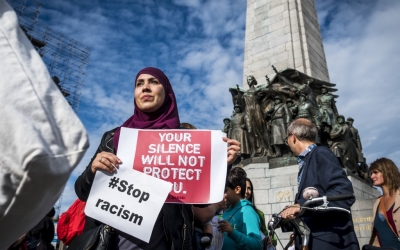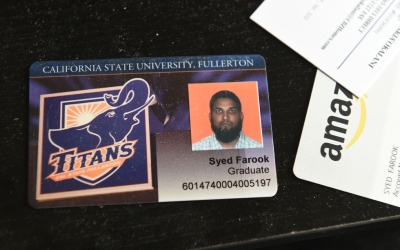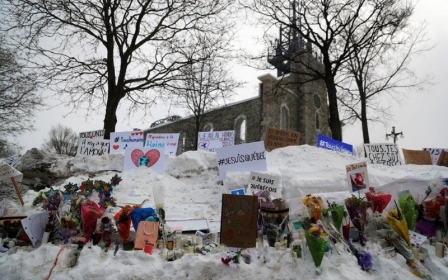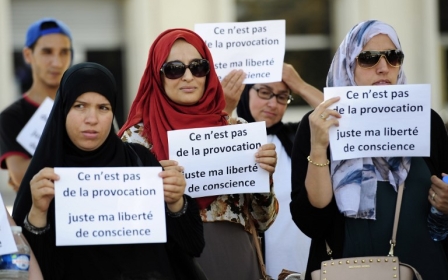Islamophobia heard loud and clear in Canada's adhan controversy
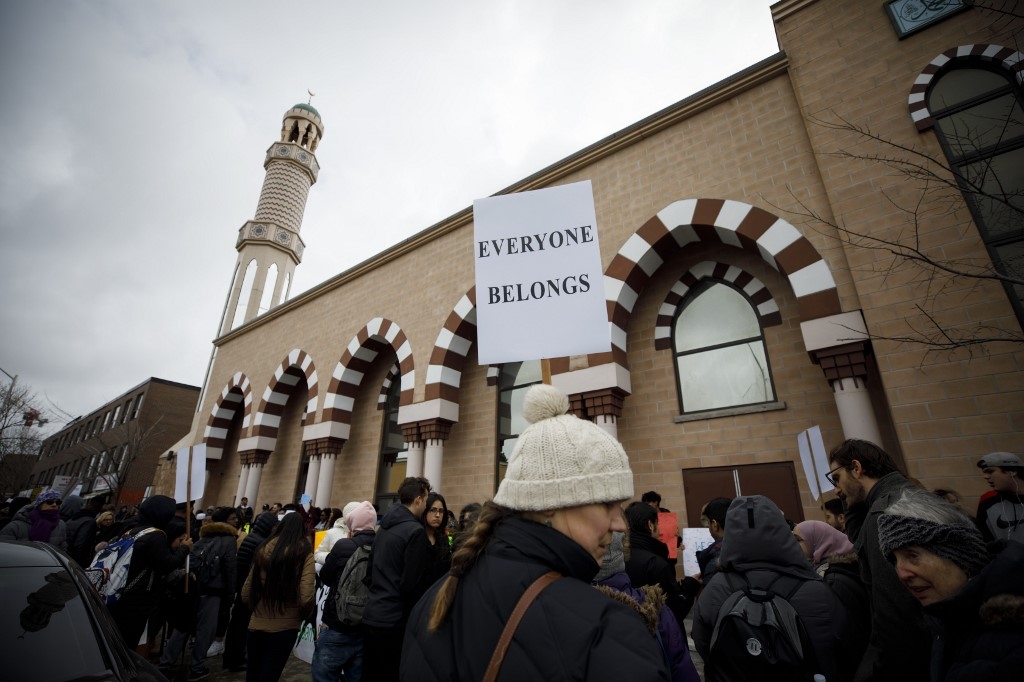
When the idea was initially floated during Ramadan that the Adhan, or Muslim call to prayer, would be publicly broadcast in non-Muslim majority areas, my Islamophobia radar went into high alert, thinking of the backlash - and it came swiftly.
I had calculated that the negatives would far outweigh the positives, especially when there is so much anti-Muslim hate already.
I was pleasantly surprised when I saw all the support from the general public in Western cities. So many non-Muslims signed petitions supporting the initiatives. One of the earliest mosques in Toronto, the Islamic Center of Toronto (commonly known as Jami Mosque), even held its first public adhan and offered break-fast food to the neighbours.
I also saw a few posts on social media from Muslims who said how this Ramadan felt different for them due to Covid-19, but that this changed when they heard the adhan while sitting at home or in their cars outside a mosque. It was the closest they could get to a mosque this Ramadan. It made some feel whole again.
Encouraging diversity
New MEE newsletter: Jerusalem Dispatch
Sign up to get the latest insights and analysis on Israel-Palestine, alongside Turkey Unpacked and other MEE newsletters
This is the Canada most people hear about. Diversity is celebrated and the Charter of Rights and Freedoms protects religious rights, as dictated by individual subjective conscience. The test is not what the clergy or even the majority in a group believe, but whether the person's belief is sincerely held.
What really got my attention, though, had nothing to do with wanting to hear the adhan over loudspeakers. It had everything to do with confronting hate and Islamophobia
“People need comfort and familiarity during this difficult time,” Mississauga Mayor Bonnie Crombie posted on Facebook, when Mississauga joined Toronto and a growing list of Western cities to exempt mosques from noise bylaws.
“I hope this will help our Muslims [sic] friends in their observance of this sacred month of devotion and spiritual reflection. Ramadan Mubarak!” tweeted Ottawa Mayor Jim Watson.
This is my kind of Canada, accepting of all.
What really got my attention, though, had nothing to do with wanting to hear the adhan over loudspeakers. It had everything to do with confronting hate and Islamophobia.
Old-world hatreds
Most people have been supportive of this accommodation, which will make it easier for their Muslim neighbours to get through Ramadan and lockdown. But a tiny few from three separate quarters have resorted to projecting their own hatred through social media loudspeakers as well.
Hindutva supporters and a few Coptic Christian activists have imported old-world hatreds to attack this symbolic gesture of acceptance and diversity.
Ravi Hooda, a (since-fired) local school council chair, realtor and immigration consultant, tweeted: “What’s next? Separate lanes for camel & goat riders, Allowing slaughter of animals at homes in name of sacrifice, Bylaw requiring all women to cover themselves from head to toe in tents to appease the piece [sic] fools for votes.”
When members of the community approached him, he initially said he was misunderstood because he was not referring to any one community. He also stated that he was seeking legal counsel.
Interestingly, Hooda’s Twitter account has now become private. It earlier identified him as a volunteer for the Hindu Swayamsevak Sanghthe (HSS), an arm of the India-based group Rashtriya Swayamsevak Sangh (RSS), a right-wing Hindu nationalist and paramilitary organisation that has been criticised by rights groups and flagged by the CIA for propagating hate.
False characterisation
Hindutva supporters are not the only ones incensed. As reported by Vice, several Coptic community activists, among them John Girgis and Hani Tawfilis, have also come out against the adhan initiative.
Girgis, according to Vice, is a member of Mississauga’s Egyptian Coptic community who heads Canada’s largest network of pharmacy owners. Girgis, who has since apologised, reportedly launched two petitions against the exemption, but they were taken down by Change.org for “violating hate speech community guidelines”.
Both petitions garnered 20,000 signatures. Girgis has since said he was “totally against the hateful comments that appeared under my petitions”, according to Vice. A letter attached to the petition, which Girgis said he did not write, suggested that “hearing the Islamic call to prayer would trigger PTSD in soldiers who served for Canada in the Middle East”, Vice reported.
Imagine how insane it would sound if people called for all churches to be closed because residential school survivors would suffer PTSD at the sight of them
A third campaign is led by another prominent Coptic community activist and pharmacist, Hani Tawfilis, who repeated the same PTSD argument. Tawfilis, who ran unsuccessfully as a Conservative candidate in the last federal election for Mississauga-Erin Mills, concluded his open letter by calling on the city council “to reverse their decision and respect the will of all citizens, or make the privilege available to all communities”.
Critics have characterised the exemption as a human rights violation, because it allegedly only applies to Muslims. This is patently false. As Crombie and others have pointed out, exemption requests are welcome from all community groups.
Imagine how insane it would sound if people called to close all churches because indigenous Canadian survivors of residential school abuses or victims of predator priests would suffer PTSD at the sight of them.
Hate brings together strange bedfellows, including the usual suspects: the far right. Fair-minded people must unite to call out these movements and expose them.
Mountain out of a molehill
While considering this issue, there are a few important considerations. Firstly, the adhan exemption is a temporary measure permitted during Ramadan this year due to coronavirus-mandated lockdowns. The fast is typically broken with the sunset call to prayer.
Second, it only lasts for a few minutes at sundown during the month of Ramadan when the call to prayer is also a marker to break the fast. The one I happened to hear from Madinah mosque in Toronto lasted under three minutes.
Third, only a tiny fraction of mosques are even taking advantage of the noise exemption - and most mosques are not even in residential areas. Not only that, but the volume generally appears to be quite low; you must be near the mosque to hear it.
Finally, noise exemptions are nothing new. You can apply for one if you are hosting an event. In Toronto, 177 noise exemptions were granted for construction activities alone in 2018, and many others for different reasons. Churches also enjoy the exemption automatically in many jurisdictions. Moreover, some events take place even without an exemption.
Brampton Mayor Patrick Brown summed it up nicely: “Our noise bylaw originally passed in 1984 only included an exemption for Church bells. It will now include all faiths within the permitted hours & decibel levels. The Muslim community can proceed with the sunset azan because it’s 2020 & we treat all faiths equally.”
That said, it should also be clear that this is not such a big deal. As a Toronto Star editorial noted: "It was a simple yet meaningful gesture at a time when the Covid-19 pandemic makes it impossible for Muslims to gather physically at their places of worship."
Even those who could not care less about hearing the adhan should realise that this is nothing but haters making a mountain out of a molehill for political mileage. Old-world wounds can quickly infect others if allowed to fester. Let’s beat this virus.
The views expressed in this article belong to the author and do not necessarily reflect the editorial policy of Middle East Eye.
Middle East Eye delivers independent and unrivalled coverage and analysis of the Middle East, North Africa and beyond. To learn more about republishing this content and the associated fees, please fill out this form. More about MEE can be found here.



